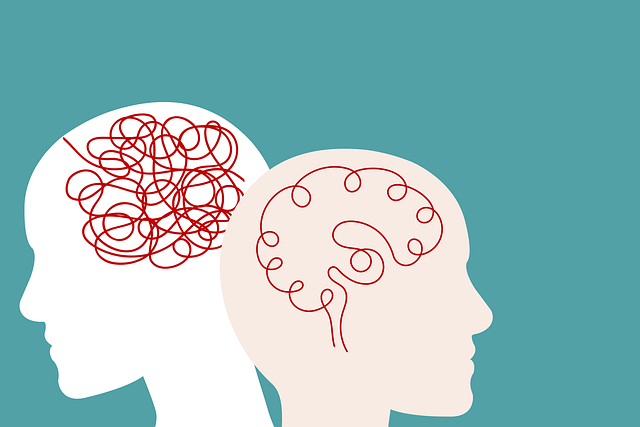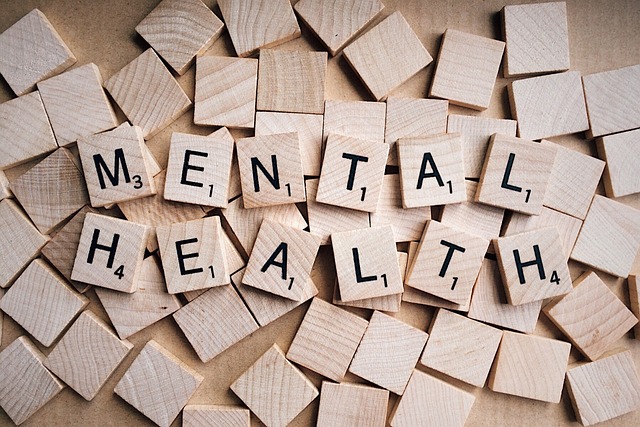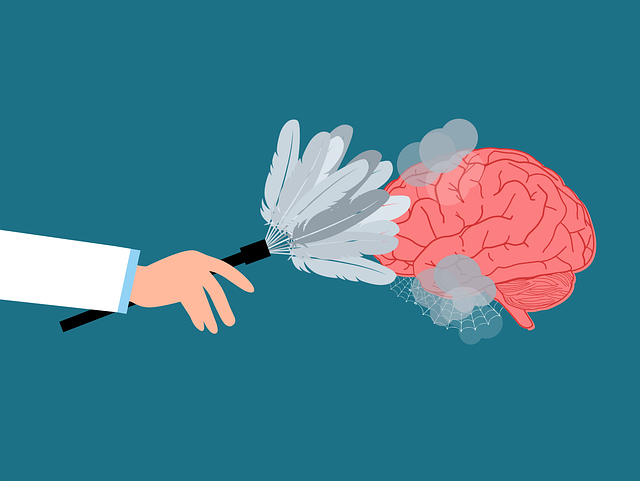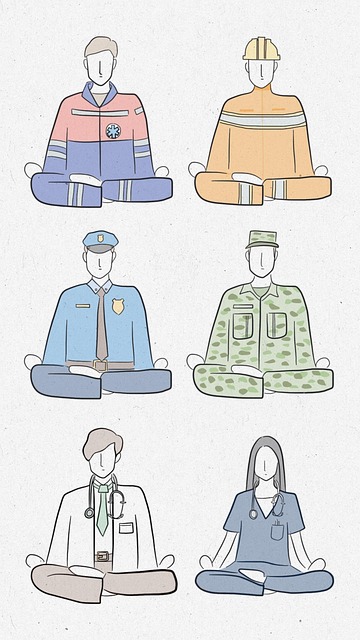Arvada Learning Disability Therapy utilizes mindfulness meditation as a powerful tool for mental health and well-being, reducing stress, anxiety, and depression. They offer guided and unguided meditations, tailored education programs, and podcast series to support diverse practices. Creating a dedicated meditation space with a ritual of deep breaths enhances focus and fosters emotional healing. Integrating short mindfulness exercises into daily routines promotes present-moment awareness, inner strength, and calmness in challenging situations, making it an accessible tool for anyone aiming to improve mental health and emotional resilience, especially those dealing with mental illness or seeking to reduce stigma.
Discover the transformative power of mindfulness meditation with guidance from Arvada Learning Disability Therapy. This comprehensive guide offers a structured approach, ensuring you harness its potential effectively. From understanding the fundamentals to mastering techniques like guided and unguided meditations, we equip you with strategies to overcome distractions and integrate mindfulness into daily life. Cultivate inner peace and enhance focus through practical tips tailored by experts at Arvada Therapy.
- Understanding Mindfulness Meditation: A Foundation for Arvada Learning Disability Therapy
- Setting the Stage: Preparing Your Space and Mind for Practice
- Techniques to Master: Guided vs. Unguided Meditations for Effective Learning
- Overcoming Challenges: Strategies for Handling Distractions and Common Obstacles
- Integrating Mindfulness into Daily Life: Practical Tips from Arvada Therapy
Understanding Mindfulness Meditation: A Foundation for Arvada Learning Disability Therapy

Mindfulness meditation is a practice that cultivates present-moment awareness and non-judgmental observation of thoughts, emotions, and bodily sensations. It serves as a foundational practice in Arvada Learning Disability Therapy, offering individuals tools to navigate challenges and enhance their overall well-being. By focusing on the here and now, mindfulness meditation helps reduce stress, anxiety, and depression, fostering positive thinking and mental health resilience.
Incorporating this ancient technique into therapy sessions enables professionals to design tailored Mental Health Education Programs that empower clients with practical skills for self-regulation and emotional intelligence. Moreover, engaging in regular mindfulness practices can be complemented by listening to a well-produced Mental Wellness Podcast Series, further enriching the therapeutic journey and promoting ongoing mental wellness development.
Setting the Stage: Preparing Your Space and Mind for Practice

Creating a dedicated space for your mindfulness meditation practice is a powerful step towards enhancing mental wellness and cultivating present-moment awareness. Imagine it as establishing a sanctuary where you can retreat to, free from distractions and interruptions. In Arvada Learning Disability Therapy’s perspective, this preparation goes beyond physical setup; it involves setting your mind in a state of calm and openness.
Start by decluttering your practice area, ensuring it is a haven free from the chaos of daily life. Consider incorporating elements that nurture peace—soft lighting, soothing scents, or even a small potted plant. As you prepare, take a moment to center yourself. Close your eyes and take a few deep breaths, allowing tension to melt away. This initial ritual prepares not only your space but also sets the tone for a practice that supports depression prevention and fosters social skills training through mindfulness’s profound impact on mental wellness.
Techniques to Master: Guided vs. Unguided Meditations for Effective Learning

Both guided and unguided meditations offer valuable tools for mindfulness practice, catering to diverse learning preferences in Arvada Learning Disability Therapy. Guided meditations involve an instructor providing verbal cues, making them ideal for beginners or those seeking structured support. This method facilitates a deeper understanding of various meditation techniques, enhancing focus and mental clarity. On the other hand, unguided meditations allow individuals to explore their minds freely, fostering independence and self-discovery.
For effective learning, it’s beneficial to alternate between these approaches. Starting with guided sessions enables beginners to grasp fundamental concepts and build confidence. Over time, transitioning to unguided practices empowers individuals to navigate emotional healing processes and trauma support services independently. This blend ensures a well-rounded mindfulness meditation practice, contributing to improved stress management workshops organization within the individual.
Overcoming Challenges: Strategies for Handling Distractions and Common Obstacles

Overcoming challenges is an integral part of any mindfulness meditation practice, especially for those navigating through distractions and common obstacles. At Arvada Learning Disability Therapy, we recognize that developing inner strength and coping skills is crucial for maintaining a consistent meditation routine. One effective strategy to handle distractions is to acknowledge them without judgment. When your mind wanders, gently guide it back to the present moment, focusing on your breath or the chosen meditation object.
Cultivating mindfulness involves becoming more aware of your thoughts and sensations without reacting impulsively. This practice can significantly enhance mood management, enabling you to stay calm and composed even in challenging situations. By regularly engaging in mindfulness meditation, you can develop a stronger connection with your inner strength, making it easier to overcome obstacles and foster positive coping skills.
Integrating Mindfulness into Daily Life: Practical Tips from Arvada Therapy

Integrating mindfulness into daily life is a powerful way to enhance mental health and emotional well-being, as advocated by Arvada Learning Disability Therapy. This ancient practice encourages individuals to focus on the present moment, cultivating awareness of their thoughts, feelings, and bodily sensations without judgment. For those dealing with mental illness or aiming to reduce the stigma associated with it, mindfulness meditation can be a transformative tool.
Practical tips from Arvada Therapy suggest incorporating short mindfulness exercises throughout the day. This could mean taking a few minutes during your morning routine to breathe deeply and set an intention for the day, or using lunch breaks to practice mindful eating by savoring each bite. Such simple practices not only promote mental illness stigma reduction efforts but also contribute to overall emotional well-being promotion techniques. By making mindfulness a regular part of their lives, individuals can develop a stronger connection with their inner selves and improve their ability to navigate life’s challenges with greater clarity and composure.
Mindfulness meditation, as guided by Arvada Learning Disability Therapy, offers a transformative journey towards mental clarity and well-being. By understanding its foundational principles, preparing a peaceful space, and mastering both guided and unguided techniques, individuals can overcome distractions and common obstacles. Integrating mindfulness into daily routines provides practical tools for fostering a more balanced and mindful life. Whether enhancing focus, reducing stress, or improving overall mental health, Arvada Therapy’s approach ensures that mindfulness meditation becomes an accessible and beneficial practice for all.













